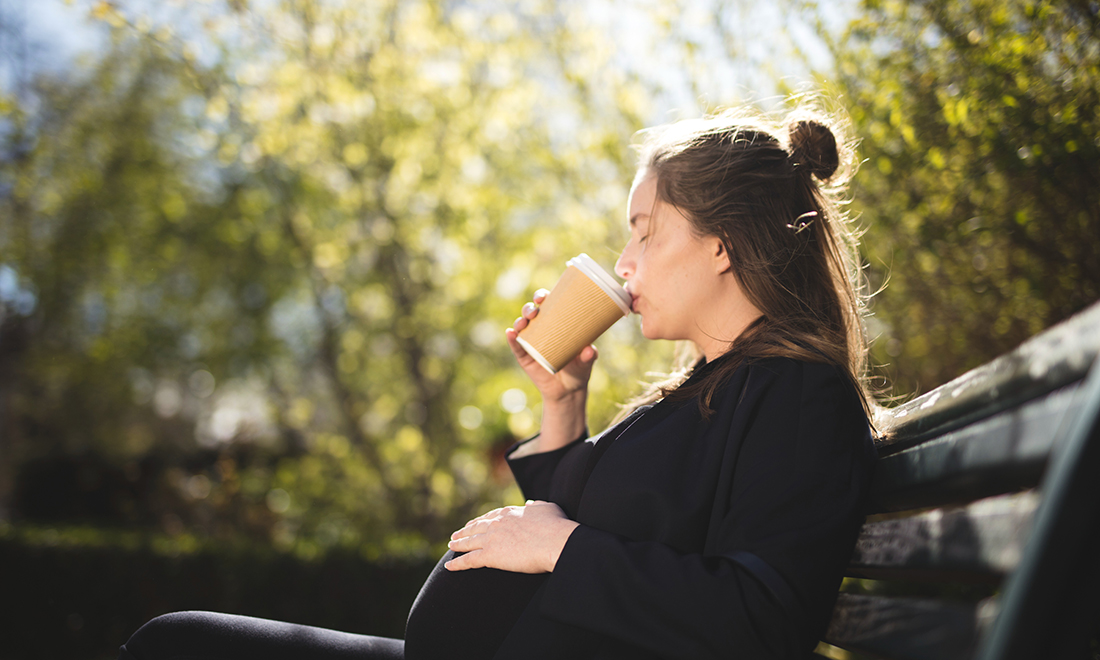
今年10月31日发布的一项研究发现,孕妇早上喝咖啡、苏打水或茶,会降低儿童身高,并且可能增加儿童未来患肥胖和其他疾病的风险。
位于美国马里兰州贝塞斯达的尤妮斯·肯尼迪·施莱佛国家儿童健康与人类发育研究所(Eunice Kennedy Shriver National Institute of Child Health and Human Development)以及约翰斯·霍普金斯大学布隆伯格公共卫生学院(Johns Hopkins Bloomberg School of Public Health)的研究人员发现,摄入大量咖啡因的孕妇生育的子女,与少量摄入或不摄入咖啡因的孕妇生育的子女相比,身高更矮。这项研究发表于《美国医学会杂志》(Journal of the American Medical Association)。
本项研究跟踪分析了数千名4岁至8岁的儿童,根据母亲在孕期的咖啡因摄入量对这些儿童进行分组。在其中一组研究对象里,孕期咖啡因摄入水平最高(相当于每天约6杯咖啡或更多)的女性的子女,7岁时的平均身高比咖啡因摄入水平最低(相当于每天不超过四分之一杯咖啡)的女性的同龄子女矮1.5厘米。
在另外一组研究对象中,孕期咖啡因摄入水平最高的女性的子女,平均身高比咖啡因摄入水平最低的女性的子女矮0.68厘米至2.2厘米。研究人员称,身高差距在4岁至8岁会不断扩大。
作者指出,研究表明“母亲摄入咖啡因与儿童身高长期下降有关”,但他们并不确定背后的原因。
除了外貌以外,身高为什么重要?研究称,身材矮小与成年后患心脏病、糖尿病和肥胖症的风险增加有关,可能增加高咖啡因消费者的孩子成年后出现健康问题的风险。
除此之外,2018年曾经有一项研究,分析了近51,000名挪威孕妇的咖啡因摄入情况,研究发现高咖啡因摄入量与儿童体重指数(BMI)提高有关。但新研究并未得出类似的结论。作者写道,该领域仍然需要进行更多的研究。(财富中文网)
译者:刘进龙
审校:汪皓
今年10月31日发布的一项研究发现,孕妇早上喝咖啡、苏打水或茶,会降低儿童身高,并且可能增加儿童未来患肥胖和其他疾病的风险。
位于美国马里兰州贝塞斯达的尤妮斯·肯尼迪·施莱佛国家儿童健康与人类发育研究所(Eunice Kennedy Shriver National Institute of Child Health and Human Development)以及约翰斯·霍普金斯大学布隆伯格公共卫生学院(Johns Hopkins Bloomberg School of Public Health)的研究人员发现,摄入大量咖啡因的孕妇生育的子女,与少量摄入或不摄入咖啡因的孕妇生育的子女相比,身高更矮。这项研究发表于《美国医学会杂志》(Journal of the American Medical Association)。
本项研究跟踪分析了数千名4岁至8岁的儿童,根据母亲在孕期的咖啡因摄入量对这些儿童进行分组。在其中一组研究对象里,孕期咖啡因摄入水平最高(相当于每天约6杯咖啡或更多)的女性的子女,7岁时的平均身高比咖啡因摄入水平最低(相当于每天不超过四分之一杯咖啡)的女性的同龄子女矮1.5厘米。
在另外一组研究对象中,孕期咖啡因摄入水平最高的女性的子女,平均身高比咖啡因摄入水平最低的女性的子女矮0.68厘米至2.2厘米。研究人员称,身高差距在4岁至8岁会不断扩大。
作者指出,研究表明“母亲摄入咖啡因与儿童身高长期下降有关”,但他们并不确定背后的原因。
除了外貌以外,身高为什么重要?研究称,身材矮小与成年后患心脏病、糖尿病和肥胖症的风险增加有关,可能增加高咖啡因消费者的孩子成年后出现健康问题的风险。
除此之外,2018年曾经有一项研究,分析了近51,000名挪威孕妇的咖啡因摄入情况,研究发现高咖啡因摄入量与儿童体重指数(BMI)提高有关。但新研究并未得出类似的结论。作者写道,该领域仍然需要进行更多的研究。(财富中文网)
译者:刘进龙
审校:汪皓
A woman’s morning coffee while pregnant—or soda or tea—could result in shorter stature in her children, potentially putting them at risk for obesity and disease later in life, according to a study released on October 31.
Pregnant women who consume large quantities of caffeine tend to have children who are shorter, when compared to the children of women who consume low quantities of caffeine or none at all, according to a study from researchers at the Eunice Kennedy Shriver National Institute of Child Health and Human Development in Bethesda, Md., in addition to Johns Hopkins Bloomberg School of Public Health. The study was published Monday by the Journal of the American Medical Association.
The study followed thousands of children, ages 4 to 8, of a diverse group of women with varying levels of caffeine consumption during pregnancy. In one group studied, children of women with the highest level of caffeine consumption while pregnant—equivalent to around six cups of coffee or more a day—were, on average, 1.5 centimeters shorter at age 7 than children of women with the lowest level of caffeine consumption while pregnant—equivalent to a quarter cup of coffee a day or less.
In another group studied, children of women with the highest level of caffeine consumption while pregnant were between .68 and 2.2 centimeters shorter than children of women with the lowest level of caffeine consumption. The gap in height widened between ages 4 and 8, researchers stated.
The findings indicate that “maternal caffeine consumption is associated with long-term decreases in child height,” the authors wrote, though they’re unsure as to why that might be.
Appearance aside, why might height matter? Shorter stature has been associated with an increased risk of heart disease, diabetes, and obesity as an adult, potentially putting the children of high-caffeine consumers at greater risk for health problems later in life, according to the study.
Other studies like one published in 2018 that looked at the caffeine intake of nearly 51,000 pregnant Norwegian women found an association between high maternal caffeine intake and an increase in a child’s BMI, or body mass index. But the new study did not come to a similar conclusion. Further study is warranted, the authors wrote.






